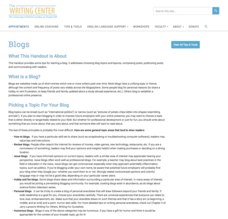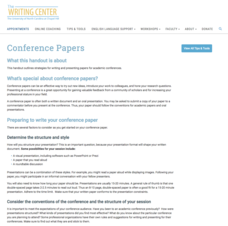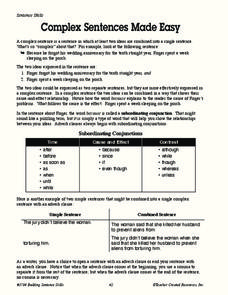EngageNY
Using Multiple Resources of Information: Creating a Cascading Consequences Chart about DDT and Practicing a Fishbowl Discussion
For every action there is a consequence. Scholars continue their work on creating a cascading consequence chart about DDT using Welcome Back, The Exterminator, Rachel Carson: Sounding the Alarm on Pollution along with graphic organizers...
New York State Education Department
Comprehensive English Examination: August 2012
Looking for a resource to wrap up all English skills in one? Here's a comprehensive resource that includes listening and reading passages, responding to poems, writing an essay, and analyzing a quote. The packet includes passages and...
Center for Learning in Action
Introduction to Matter
Begin your states of matter lessons with a demonstration designed to introduce the concept that all matter has properties. Reinforce this concept through vocabulary exploration, and the creation of atom models; salt, water, and carbon...
Facing History and Ourselves
Bio-poem: Connecting Identity and Poetry
Writing a bio-poem is a great way to have young scholars go below the surface and reflect on who or what has made them who they are. Check out this richly detailed lesson that provides step-by-step directions for crafting a bio-poem.
College Board
2017 AP® English Language and Composition Free-Response Questions
In the age of the Internet, are libraries still important? A collection of sources, part of a set of sample free-response questions from the AP® English Language and Composition exam, discuss that question. A variety of sources,...
Radford University
Create A Ramp Design
Ramp up a design challenge. Class members design ramps to meet a client's requirements to comply with the American with Disabilities Act. The scholars create a scaled graph of their designs and determine the equations of the lines on...
C3 Teachers
Reparations: Why Are Reparations Controversial?
To understand why the topic of reparations is controversial, young scholars gather background information by reading articles, watching videos, and examining cases where reparations were made. Learners consider the lasting repercussions...
National Gallery of Canada
Class Commission
Simulate a real-life situation with a project proposal activity for an art installation. Learners look at work by Joe Fafard and examine his website for information about public art displays. They also search for other proposals for...
Center for Civic Education
Becoming an Informed Voter: Creating Initiatives
Continuing from a previous lesson on how to read and analyze proposed legislation on election ballots, your class members will now practice writing up their own proposals for a new school rule or local ordinance that will be discussed...
Curated OER
Introduce Vocabulary: From Tadpole to Frog (Pfeffer)
Take an amphibious journey with budding readers as you explore vocabulary in Wendy Pfeffer's informative book From Tadpole to Frog. This text is the backdrop of a vocabulary exercise based on six words: fertilize, gills, hatch,...
Novelinks
The Hobbit: Problematic Situation
As part of a unit study of The Hobbit, class members engage in an activity that asks group to practice the skills needed to reach consensus in a discussion.
K20 LEARN
Texture Poetry: The Great Gatsby and the Sense of Touch
To prepare for crafting a descriptive poem about a character in F. Scot Fitzgerald's The Great Gatsby, groups describe the texture of objects hidden in small bags. Individuals then select a character from the novel and an object...
Maryland Department of Education
The Concept of Diversity in World Literature Lesson 9: Debating Imperialism
To gain an understanding of Imperialism, class members read Rudyard Kipling's poem, "The White Man's Burden" and Mark Twain's essay, "To the Person Sitting in Darkness." Groups compare these perceptions of non-white cultures with the...
University of North Carolina
Blogs
The blogosphere may be overwhelmed with content, but there's still room for unique points of view. Creating a blog that stands out, however, is the bigger challenge. A handout on blogs, part of a series of handouts on specific writing...
Tech Coach Corner
Friendly Letter
Many youngsters do not know how to write a friendly letter! Show them this presentation to inform them. The PowerPoint splits a friendly letter into five elements: heading, salutation, body, closing, and signature. For each element,...
University of North Carolina
Conference Papers
In the world of academia, conference papers and presentations play a big role. It's through conference papers that professors and graduate assistants share their research with others in the field. A handout on conference papers, part of...
Curated OER
Dictionary Guide Words: How Do They Guide Us?
Fourth graders, after brainstorming what the word "guide" means, examine how to use guide words in a dictionary to locate words. They define "guide," identify guide words in a variety of dictionaries and locate words using guide words....
Teacher Created Resources
Complex Sentences Made Easy
Support scholars' ability to write complex sentences with a two-page worksheet designed to inform and reinforce. Here, learners obtain a brief overview of what a complex sentence is and how one is made; then apply their new-found...
Curated OER
Apostrophes - How and When to Use Them
Apostrophes are a widely-used punctuation mark. This presentation shows pupils the two main reasons for using apostrophes, then has them test their knowledge by working with examples. Although short, this PowerPoint is packed with lots...
Bright Hub Education
How to Use Commas Correctly
Commas can be quite confusing. Young writers target troublesome grammar skills by focusing on the four most troubling uses: joining two independent clauses, separating introductory materials in a sentence, separating unnecessary...
Albert Shanker Institute
Economic Causes of the March on Washington
Money can't buy happiness, but it can put food on the table and pay the bills. The first of a five-lesson unit teaches pupils about the unemployment rate in 1963 and its relationship with the March on Washington. They learn how to create...
Curated OER
How to Carve a Pumpkin Expository Writing
Students write a paragraph to inform someone how to carve a pumpkin. In this expository lesson, students follow directions on how to write a proper expository lesson that includes an image, questions to ask yourself, and a paragraph...
Curated OER
Explanation
Walk your class through the process of writing an explanation using this resource. Learners often have to write a how-to explanation for such simple tasks as making a peanut butter sandwich. This presentation identifies key components of...
Curated OER
Test Your Writing Skills
In this letter writing skills worksheet, middle schoolers examine 15 phrases from letters and determine whether each phrase is from a formal or informal letter. Good, solid writing practice!

























